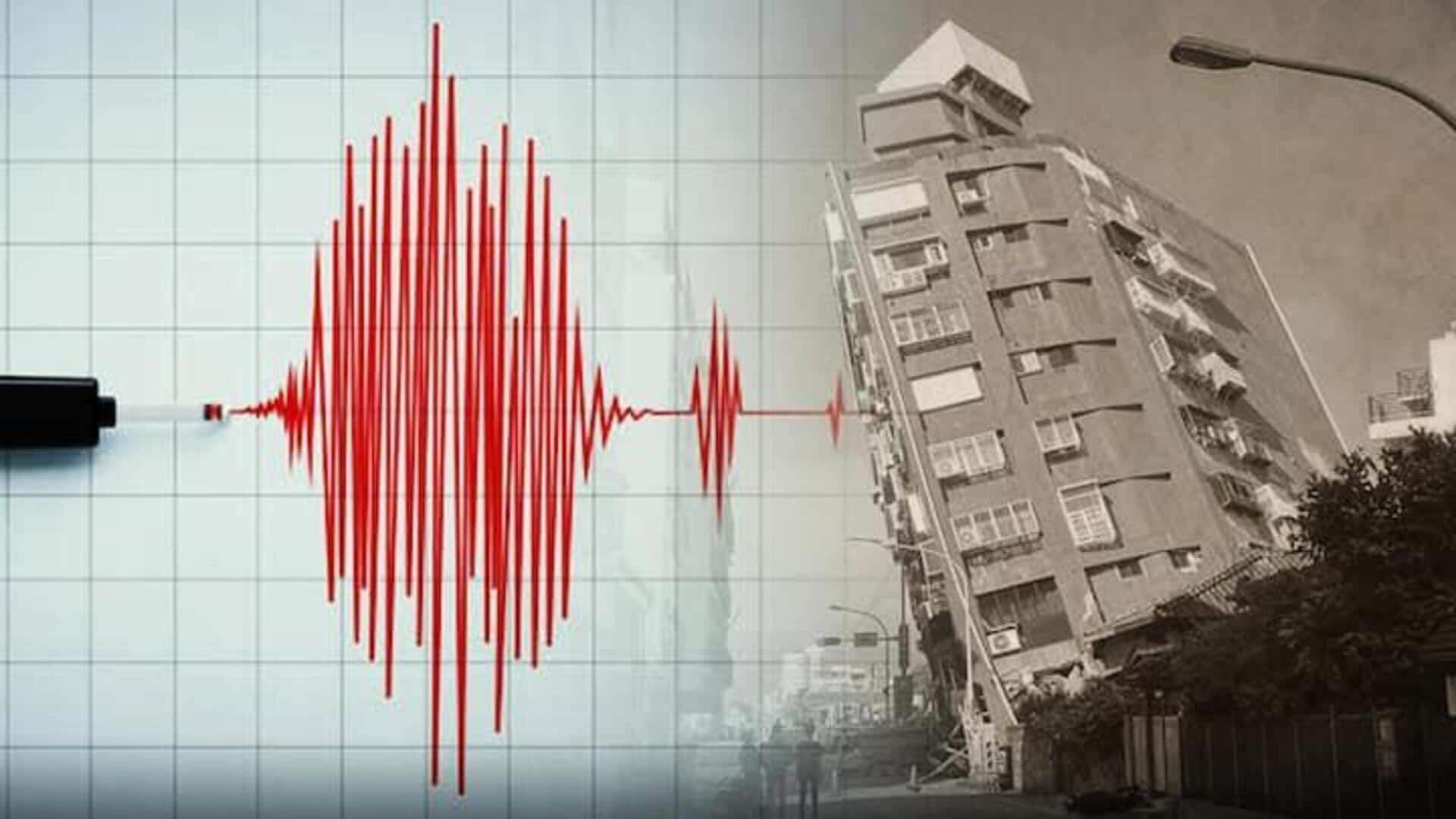
Explained: How prepared is Taiwan to deal with earthquakes
What's the story
A powerful 7.4-magnitude earthquake struck Taiwan on Wednesday morning, killing nine and injuring over 900 people. The quake was the strongest in 25 years. It was felt throughout Taiwan, with over 100 aftershocks unnerving the island of over 23 million people. But amazingly, minutes later, parents were walking their children to school, and workers were driving to offices like it was an every-day affair. What is the reason behind this nonchalant attitude that the Taiwanese have adopted? Experts answer.
Quake details
Taiwan is located along the Pacific 'Ring of Fire'
Taiwan is located along the Pacific "Ring of Fire," a line of seismic faults that encircles the Pacific Ocean, where most of the world's earthquakes occur. The area is especially prone to earthquakes due to the tension built up by the interactions of two tectonic plates, the Philippine Sea Plate and the Eurasian Plate. Keeping this in mind, the island has adopted strict building rules, a world-class seismological network, and extensive earthquake safety education campaigns.
Disaster readiness
Taiwan's preparedness for earthquakes praised
In fact, Stephen Gao, a seismologist and professor at the Missouri University of Science and Technology, said, "Taiwan's earthquake preparedness is among the most advanced in the world." The government also regularly updates earthquake resistance standards for buildings and offers financial incentives to residents to ensure their buildings meet these standards. Earthquake resistance standards were improved after the September 21, 1999 quake, which caused 2,400 deaths and injured around 1,00,000 people.
Safety measures
Earthquake safety measures reduce potential damage
Later, in the wake of a 2016 earthquake that resulted in the collapse of a 17-story apartment building and numerous fatalities, Taiwan implemented more safety measures again. These include regular earthquake drills in schools and workplaces, and widespread dissemination of information about earthquakes and safety precautions through public media and mobile alerts. "These measures have significantly enhanced Taiwan's resilience to earthquakes, helping to mitigate the potential for catastrophic damage and loss of life," Gao said.
Earthquakes
Taiwan and surrounding waters have registered about 2,000 earthquakes
Since 1980, Taiwan and its surrounding waters have seen around 2,000 earthquakes of a magnitude of 4.0 or higher. The region has also seen more than 100 earthquakes with a magnitude of 5.5 or higher, according to the United States Geological Survey. The island's worst earthquake in recent years occurred on September 21, 1999. The recent deadly earthquake in Hualien County happened in 2018, demolishing a historic hotel and other structures.